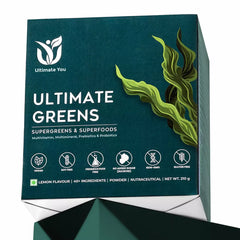Ashwagandha has been a buzzword in the world of natural supplements for quite some time. Known for its adaptogenic properties, this ancient Ayurvedic herb is often linked to stress reduction, improved energy levels, and enhanced physical performance. But can it actually increase testosterone levels?
Testosterone plays a crucial role in muscle growth, strength, libido, and overall well-being. With declining testosterone levels being a common concern, many people are turning to natural solutions like Ashwagandha. But is there real science behind this claim, or is it just another health trend?
In this article, we’ll explore whether Ashwagandha truly boosts testosterone, what the science says, and how you can incorporate it into your lifestyle for maximum benefits.
What is Ashwagandha?
Ashwagandha (Withania somnifera) is a powerful herb used in Ayurveda, the traditional Indian system of medicine. It is an adaptogen, meaning it helps the body manage stress. Moreover, it contains bioactive compounds called withanolides, which are believed to provide its numerous health benefits, including reducing stress and improving overall vitality.
Historically, Ashwagandha has been valued for enhancing stamina, reducing stress, supporting immunity, and boosting male fertility by improving hormonal balance.
What is Testosterone and Why Does It Matter?
Testosterone is a key hormone responsible for various functions, including:
- Muscle growth and strength
- Fat distribution
- Libido and sexual health
- Mood regulation
- Energy levels
Both men and women produce testosterone, but men have significantly higher levels. According to the National Institutes of Health (NIH), optimal testosterone levels are essential for maintaining overall health.
Factors That Affect Testosterone Levels
Several factors influence testosterone production, including:
- Ageing
- Chronic stress
- Poor sleep
- Unhealthy diet
- Lack of exercise
- Medical conditions like obesity and diabetes
Symptoms
Here are the few symptoms one must look at:
- Decreased muscle mass
- Low libido
- Fatigue and lack of energy
- Mood swings and depression
- Increased body fat
How Ashwagandha Helps Increase Testosterone Levels?
Reduces Stress
Chronic stress lowers testosterone, and since Ashwagandha is an adaptogen, it helps balance stress hormones, allowing the body to produce testosterone more efficiently.
Boosts Muscle Mass
Ashwagandha has been linked to increased muscle mass and strength, making it a popular supplement for athletes and gym-goers.
Sperm Quality
Clinical trials indicate that Ashwagandha can improve sperm count and motility, making it beneficial for male fertility.
Enhances Sleep Quality
Good sleep is essential for hormone production. Ashwagandha promotes better sleep, indirectly supporting testosterone production.
Best Forms of Ashwagandha
Capsules – Convenient and easy to dose
Powder – Can be mixed with drinks or food
Extracts (KSM-66, Sensoril) – Highly concentrated for better absorption
Recommended Dosage
A recommended dosage of 300 mg per day is commonly suggested, while those seeking testo0sterone support and strength gains may require a higher intake of 600-1000 mg per day.
However, individual needs can vary based on factors such as age, lifestyle, and health conditions. It is essential to consult and seek advice from a healthcare provider before use to ensure safety, proper dosing, and effectiveness for your specific health goals.
Possible Side Effects
Stomach discomfort: Mild digestive issues, such as nausea or bloating, may occur in some individuals.
Drowsiness: Relaxation and mild sedation can happen, affecting alertness and activity levels.
Potential interactions with medications: Interference with thyroid, blood pressure, or anxiety medications is possible.
Who Should Avoid Consuming Ashwagandha?
People with autoimmune conditions, such as rheumatoid arthritis or lupus, may find that ashwagandha exacerbates their symptoms. Those on thyroid medication should also avoid ashwagandha, as it may interfere with the medication's effectiveness.
Additionally, pregnant or breastfeeding women should not consume ashwagandha, as its effects on the fetus or baby are not well understood and may potentially cause harm.
Safe Usage
When using supplements, it’s important to start with lower doses and gradually increase as needed to assess your body’s response and minimize potential side effects. Jumping into high doses right away can lead to adverse reactions, imbalances, or unexpected interactions with medications.
Additionally, choosing high-quality supplements that have been third-party tested ensures purity, potency, and safety. Third-party testing helps verify that the product contains the ingredients listed on the label without harmful contaminants such as heavy metals, pesticides, or fillers.
Conclusion
Is Ashwagandha a Legit Testosterone Booster? So, does Ashwagandha increase testosterone? The answer is yes—scientific research supports it.
Ashwagandha reduces stress and cortisol, which helps improve testosterone production. It enhances muscle strength, stamina, and recovery, further supporting hormonal health.
However, Ashwagandha isn’t a magic pill. To truly maximize its benefits, combine it with a healthy diet, regular exercise, quality sleep, and stress management.
Disclaimer
The information provided is for educational purposes only and is not intended to be a substitute for medical treatment. If you're pregnant, nursing, taking medication, or have a medical condition, it's better to consult a healthcare professional. Ultimate You does not provide any guarantee regarding the accuracy, adequacy, completeness, legality, reliability, or usefulness of the information and disclaims any liability arising from it.









